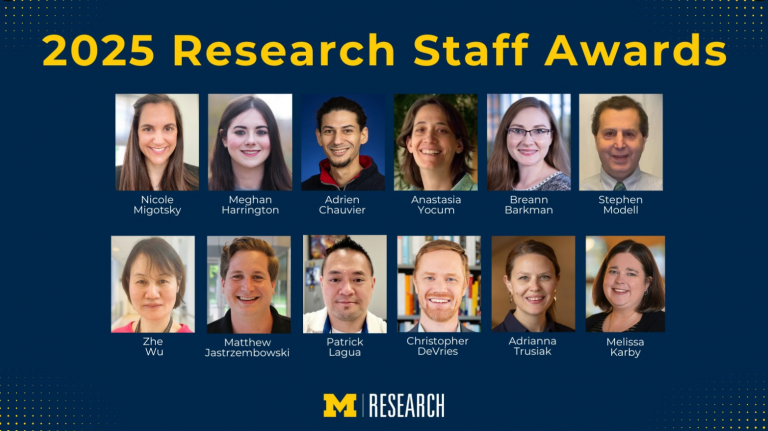RNA Symposium dives into foundational RNA bioscience (Michigan Medicine Headlines)
The U-M Center for RNA Biomedicine’s fourth annual symposium on March 29 will focus on foundational ribonucleic acid biosciences, from discovery to function.
Recent discoveries in biomedicine have revealed that RNA is critical to most aspects of human health and that its misregulation is responsible for many diseases.
As the messenger molecule that carries the DNA blueprint in human cells, it profoundly impacts all cellular processes, from stem cell differentiation to cancer.
The symposium is free and open to the public. It will feature keynote speakers from across the nation, including:
- Rachel Green of Johns Hopkins University, who will discuss high-resolution ribosome profiling revealing mechanisms of translation elongation regulation.
- Howard Chang of Stanford University, who will focus on genome regulation by long noncoding RNAs.
- Alice Telesnitsky, professor of microbiology and immunology at U-M, who will address HIV-1 RNA fate determination: the ends as a means.
- Kristen Lynch of the University of Pennsylvania, who will share her discoveries in CELF control of RNA processing in human T cells.
- David Bartel of the Massachusetts Institute of Technology, who will host his session on the influence of microRNAs on disease.
The Center for RNA Biomedicine brings U-M faculty together from across campus to pioneer RNA research, translate their discoveries into medical applications and improve human health. RNA biomedicine revelations provide an unprecedented opportunity to invest in advanced studies of RNA as a gateway to precision medicine.
As a Presidential Biosciences Initiative Scientific Research Initiative grantee, the center aims to enrich the university’s intellectual and training environment around RNA biomedicine, promote and develop cross-disciplinary collaborations, and enrich U-M’s intellectual and training environment around RNA biomedicine.
The all-day symposium begins at 8:30 a.m. in the A. Alfred Taubman Biomedical Research Science Building. It is open to U-M faculty, staff, students and anyone interested in the most recent discoveries regarding the many roles of RNA in health and disease.
More information:


